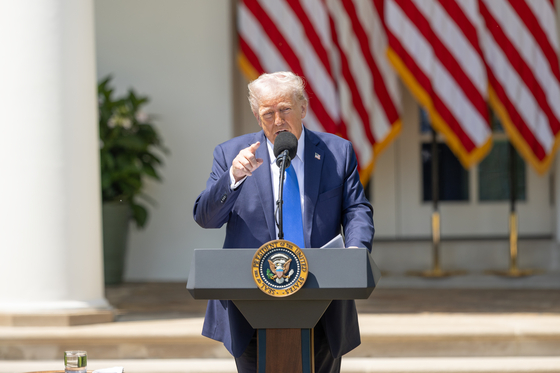The United States is working to undermine a global agreement aimed at assisting developing nations grappling with climate change and other challenges, according to an internal United Nations document reviewed by Reuters.
The Trump administration is pushing back against proposed reforms to the global financial system intended to support developing countries, including issues such as taxation, credit ratings, and fossil fuel subsidies. The administration also seeks to remove references to “climate,” “gender equality,” and “sustainability.”
This previously unreported document highlights the Trump administration’s drive to implement an “America First” approach to international institutions and negotiations, opposing initiatives to combat climate change and promote diversity, which it sees as contradictory to its goals.
The 4th International Conference on Financing for Development (FFD4), scheduled for June in Seville, Spain, is a key platform where nations will set the future direction for development finance. This conference comes after prior agreements that aimed to improve tax cooperation among developing countries, allowing them to have more influence over financial rule-making.
A draft document compiled by representatives from countries such as Mexico, Nepal, Norway, and Zambia, with assistance from the UN secretariat, outlines positions from 193 nations. The United States expressed dissatisfaction with the draft during UN negotiations in March, criticizing the language as overly detailed and accusing the document of expanding the definition of “sustainable development.”
In March, Jonathan Shrier, acting US representative to the UN Economic and Social Council, stated that the international financial institutions should retain their independent mandates and not be constrained by UN-imposed priorities.
The US has also opposed efforts to include the reform of the international financial architecture to support sustainable development. Instead, it has proposed more vague language that focuses on enhancing the resilience and effectiveness of the system in addressing present and future crises.
UN Secretary-General António Guterres emphasized the importance of overcoming the challenges ahead of the conference and urged all countries to participate in finding solutions.
While the US’ stance on development finance has become more restrictive under the Trump administration, the document shows it still supports initiatives like closer collaboration between developing countries and the private sector, as well as fostering innovation and financial literacy.
Climate change-related reforms are at the core of the FFD4 discussions, especially regarding how poorer nations can cope with natural disasters exacerbated by climate change and transition to low-carbon energy sources. Despite this, President Trump’s withdrawal from the Paris climate agreement and drastic cuts to US foreign development aid illustrate the administration’s reluctance to take action on climate-related matters.
The US has also expressed opposition to measures such as global solidarity levies, taxes on highly polluting activities, and taxes on the super-rich, which could help finance sustainable development. This position puts it at odds with other nations, including Russia, Saudi Arabia, and China.
Additionally, the US is pushing to remove provisions aimed at ensuring companies pay taxes where economic activities occur, supporting tax transparency in developing countries, and reducing fossil fuel subsidies, according to the document. The US also opposes reforms related to the credit-rating system, particularly for countries restructuring debt to finance green initiatives.
As the US, the largest shareholder in both the World Bank and the IMF, exerts significant influence, the draft document may still change as negotiations continue in the lead-up to the June conference. The US’s demands could force other countries to accept a watered-down version of the final agreement, as the process is aimed at reaching consensus among all involved nations.



